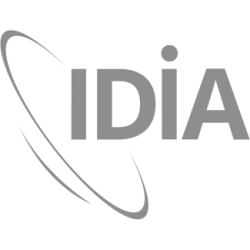Researchers from IDIA partner universities, especially junior researchers, were remarkably successful in gaining access to the MeerKAT telescope for new science projects. This means more opportunities for young scientists, more scientific discoveries, and lots of big data in need of powerful computing infrastructure in this age of mammoth scientific experiments.
How do astronomers get to use telescopes? It is a highly competitive process where astronomers have to submit a fully motivated science case. That is, a description of what they want to observe, why it matters, and how they are going to gain new scientific knowledge from the observations. A committee of experts meets and evaluates all the proposed projects. They determine which ones are the most promising, based on their scientific merit and on other aspects, such as the involvement of young astronomers and scientists in training.
On 6 May 2019, the South African Radio Astronomy Observatory announced the results of this process for so-called open time projects. Two thirds of the telescope’s time are already allocated to eight large survey projects, which were announced in 2017. The Inter-University Institute for Data Intensive Astronomy (IDIA) provides a research cloud computing facility for South African researchers, tailored to process radio telescope data, especially MeerKAT data. IDIA already services five of the eight large survey projects.
IDIA is a partnership of the universities of Cape Town, of the Western Cape and of Pretoria. Now astronomers at those universities have successfully bid to use some of the remaining MeerKAT time for new science projects.
Among those is Prof. Roger Deane from the University of Pretoria whose group has grown substantially in the last year with 7 honours students, 4 Masters students, 1 PhD student and two postdoctoral researchers. Deane and his group will study supermassive black holes at the centre of galaxies using MeerKAT. Deane is also part of the Event Horizon Telescope international team that recently released the first ever image of a black hole.
At the University of the Western Cape Drs. Asad, Elson, Prescott, Whittam and Prof. Santos and Vaccari all submitted successful proposals. They will investigate galaxies; hugely complex “megacities” of hundreds of billions of stars, dust, and other matter. UWC researchers will look at galaxies whether they are giant, interacting, attracting matter from their cosmic environment or varying rapidly.
The University of Cape Town is host to successful projects ranging from dying stars to mapping hydrogen gas in the universe and more studies of galaxies. Those projects will be led by senior researchers Prof. Carignan and Groot, and most impressively by two graduate students currently studying for their PhDs, Ms. Julia Healy and Miriam Nyamai.
IDIA wishes to congratulate all the leaders of the successful MeerKAT Open Time projects and we look forward to supporting their research.
